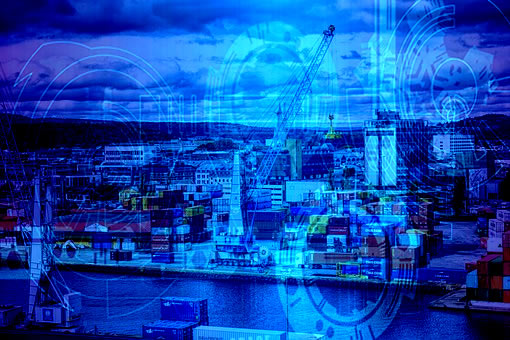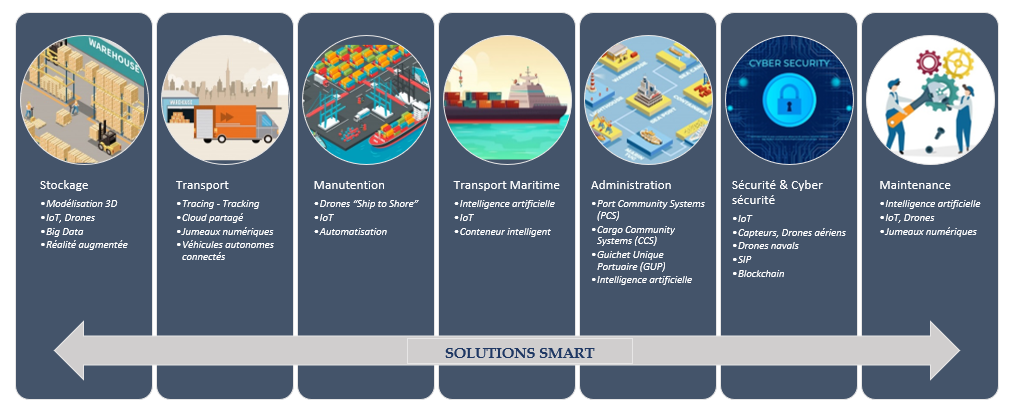African ports, the obligatory march towards digitalization
In Africa as elsewhere, the port world is experiencing a digital revolution. The digitization of ports, this new concept has been at the heart of port exchanges, since the advent of COVID-19 that has made working conditions difficult, impacting port activity.
According to Jean-Marie Koffi, Secretary General of the PMAWCA, “ Digitalization has the double advantage of avoiding human contacts, which are essential in times of crisis, and of compensating for human errors in the transmission of documents between administrations.”
We note that several ports have already taken steps to digitize themselves. In South Africa, for example, the port of Durban (pilot site of a national Smart Port development project) has deployed an arsenal of drones (air and submarine) and sensors, not only to monitor traffic, but also to inspect the infrastructure, examine the seabed, etc., without ever interrupting operations.
Ports that undertake a Smart strategy commit themselves structurally and in the long term to modifying their activities. These changes are cumbersome and often complex to implement.
In fact, some ports develop initiatives at the margins, experiments (example: Port de Durban), while others deploy Smart solutions on a large scale in the port and even around. These are what can be called real Smart Ports. (Smart Ports – Wavestone)
A Smart Port can therefore be defined as “ a port that uses automation and new technologies such as artificial intelligence, Big Data, the Internet of Things (IoT), blockchain, to improve its performance and competitiveness. ”
‘‘…a “Smart Port” has several advantages for a port. Whether it’s economic, environmental, social, or security, …’’
Becoming a “Smart Port” has several advantages for a port. Whether it’s econo-mic, environmental, social, or security, the digital transformation of a port can:
• improving its competitiveness;
• increasing its attractiveness;
• reduction of port nuisances;
• facilitating and simplifying administrative procedures;
• reducing costs;
• reducing its carbon footprint;
• improving its transit-time;
• improving safety at the port;
• Renew the links between the port and the citizens of the port city;
• to also address issues related to the traceability of goods at the terminal; etc.
Smart solutions that are implemented in a port, are deployed at the level of the activities composing its value chain. Although the transport, handling and storage of goods are at the heart of the port’s activities, Smart solutions are also implemented on the support functions such as port administration, maintenance, security and cyber security of ports.
by Pascaline ODOUBOUROU
References : orange-business.com / portsetcorridors.com / Smart Ports – Wavestone





